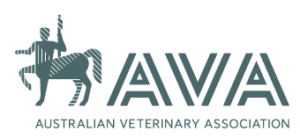Prescription Medications – Conditions of Sale Policy
It is West Queanbeyan Veterinary Hospital Policy to follow all Guidelines and Health Regulations with regard to Medications.
It is illegal for a Veterinary Surgeon to supply an Animal Prescription Medication/Remedy to a client or animal owner without the patient being examined by a Veterinary Surgeon or the patient being under the care of a Veterinary Surgeon.
Under the care of a Veterinary Surgeon – is defined as the patient being currently treated or has been recently examined (within the last 30 days) for an illness. For ongoing/long term Medications, the patient must be seen/re-checked by a Veterinarian within the last 6 months.
Animal Prescription Only Medications/Remedy or Schedule 4 & 8 Drugs include:
Antibiotics, Narcotics, Anaesthetics, Anabolic Steroids, Cortisone or other hormones, Live Virus Vaccines and Anti-inflammatories (including Phenylbutazone)
This practice will not place its right to trade in jeopardy by supplying these drugs to clients in breach of the health regulations.
There may be alternative remedies to those listed above which can be procured without an examination, Please ask a member of our veterinary team at your next appointment for advice on your pet’s health.
How do these guidelines affect you?
One of the key points in the criteria is ensuring you are a “bona fide” client of West Queanbeyan Veterinary Hospital. The Veterinary Practitioners Board of NSW interpretation of this means that we need to have physically seen your pet at WQVH within the past 6 months. If you are requesting medication, we need to have seen your pet within that time period.
To be a bona fide client:
- The vet has assumed responsibility regarding the health and welfare of the animals and need for treatment with owner’s agreement
- The vet has knowledge of the animals to initiate a general diagnosis of the medical condition. This means the vet has recently seen and is acquainted with the keeping / care of animals by virtue of an examination or medically appropriate and timed visits to the premises where animals are kept.
- The vet has arranged emergency coverage and follow up evaluation if an adverse reaction or failure of the treatment regimen occurs.
But what if your pets don’t need a vet every 6 months?
If you have not been seen by a Veterinarian at West Queanbeyan Veterinary Hospital in the past 6 months, we cannot legally supply you with ANY prescription medications.
In this instance, if your pet requires medications, you can book a Medication Review or Health Check Appointment.
WQVH understands that these legislative requirements may seem inconvenient, especially when you have been a long-standing client of WQVH, however please understand that we have a legal obligation to uphold these regulations.
Is a 6 monthly Health Check/Medication Review beneficial?
Regular Health Checks/Medication Reviews play a vital role in ensuring your pet is happy and healthy.
In most cases, longterm ongoing medications require blood tests to ensure your pet is receiving the right dose and best therapeutic drug available for their condition, and opportunity to check that their current medication is not adversely affecting organ functionality and also allows for early detection of sickness or worsening conditions early!
Should you have any further questions regarding the above information, please contact the clinic on 02 6297 5542
Medication Re-ordering:
For your convenience, Please call the clinic on 02 62975542 to place an order for your pets medications. Once approved by your pets Veterinarian, medications will be ready for collection from 1pm the following day.
Please Note:
Compounded and Special Order Medications take up to 7 days or longer to be ready for collection from WQVH as they are subject to availability and delivery.
Prescription Medications
As a valued client at West Queanbeyan Veterinary Hospital, we would like to inform you of some legal requirements relating to the supply of prescription medications for animals (Veterinary Practices Act, 2003 & Controlled Substances Act 1984).
The Veterinary industry is coming under increasing scrutiny on many issues, foremost of which is the supply of prescription medications (e.g. antibiotics, S8 drugs). WQVH has reviewed our clinic policies to reflect our commitment to upholding the reputation of the industry and to meet our legal requirements.
In 2005, the Australian Veterinary Surgeons Board developed a checklist of ‘Professional Veterinary Dispensing Service’ to guide veterinarians in the use of prescription medications. The listed criteria must be met before a veterinarian can sell, supply, prescribe or administer medication to any animal.
Prescribing, Authorising and Dispensing (PAD) Checklist
-
- You (the client) must be a bona fide (genuine) client of the clinics
- There must be a therapeutic need
- The animal / herd / flock must be under the veterinarian’s care
- The requirements for storage and handling have been fulfilled
- The Vet has followed the requirements of the drugs and poisons and control-of-use legislation in their state/territory
- The correct protocols are used for documentation, recording and labelling
- Follow up and check of the use of and the outcome from medication
- The vet must be able to provide after care for the animal / herd / flock
- You (the client) must understand the instructions for use, and use the medication properly (including observing any withholding periods and export slaughter intervals)
- The amount dispensed is reasonable for the treatment of the condition for which they have documented the therapeutic need.
- If the drug is an antibiotic, they have considered the expected infectious agent, spectrum of activity of the drug and implications of antimicrobial resistance.
The NSW Veterinary Practice Legislation 2013 released by the NSW Government States:
A Veterinary practitioner may supply restricted substances only:
To a person responsible for the care of an animal that the veterinary practitioner has physically examined or has under his or her direct care, and only in respect of the animal, or
To a person responsible for the care of an animal, with the written authority of another veterinary practitioner who has physically examined the animal concerned or has it under his or her direct care, and only in respect of that animal.




